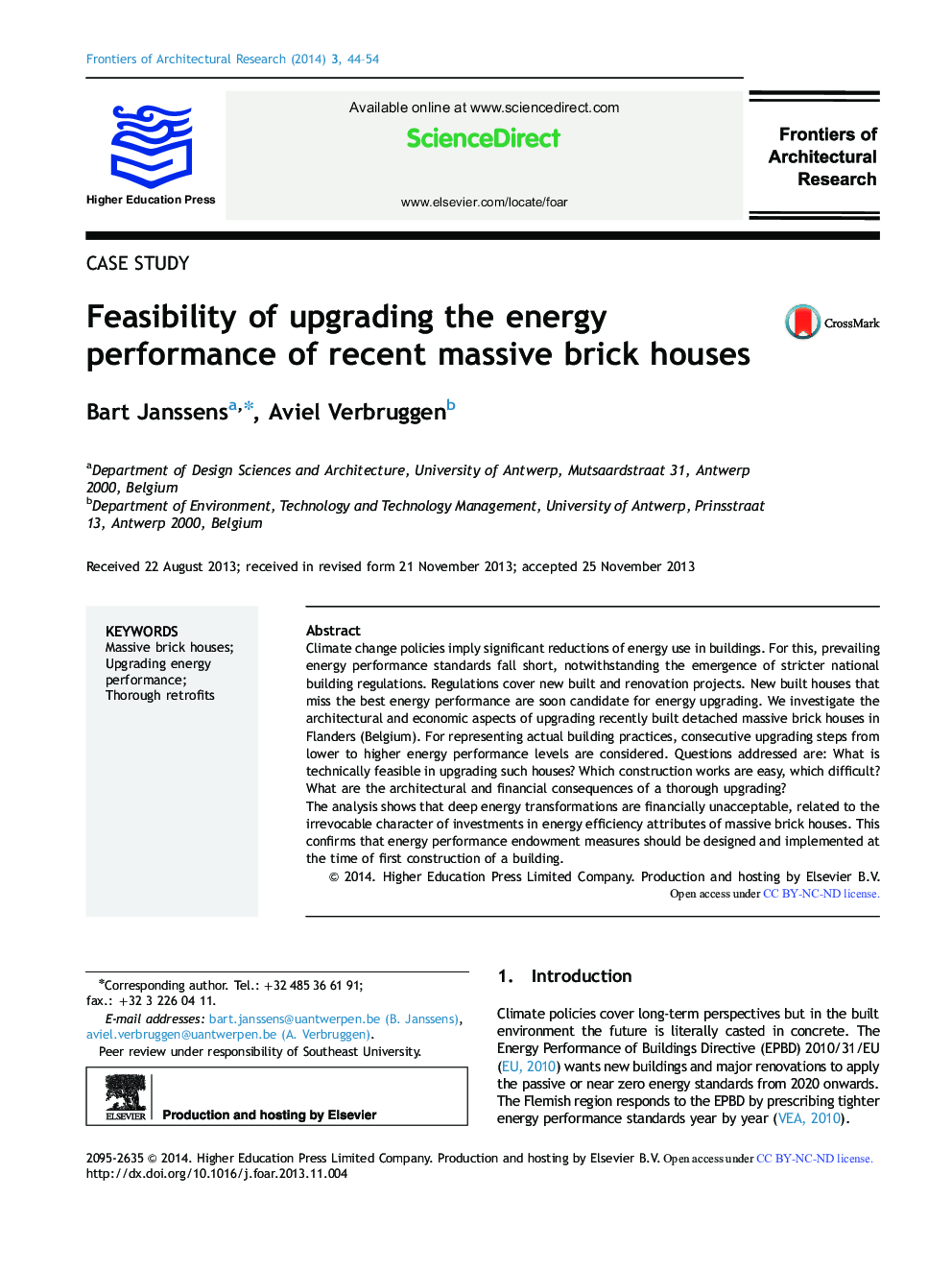| Article ID | Journal | Published Year | Pages | File Type |
|---|---|---|---|---|
| 270665 | Frontiers of Architectural Research | 2014 | 11 Pages |
Climate change policies imply significant reductions of energy use in buildings. For this, prevailing energy performance standards fall short, notwithstanding the emergence of stricter national building regulations. Regulations cover new built and renovation projects. New built houses that miss the best energy performance are soon candidate for energy upgrading. We investigate the architectural and economic aspects of upgrading recently built detached massive brick houses in Flanders (Belgium). For representing actual building practices, consecutive upgrading steps from lower to higher energy performance levels are considered. Questions addressed are: What is technically feasible in upgrading such houses? Which construction works are easy, which difficult? What are the architectural and financial consequences of a thorough upgrading?The analysis shows that deep energy transformations are financially unacceptable, related to the irrevocable character of investments in energy efficiency attributes of massive brick houses. This confirms that energy performance endowment measures should be designed and implemented at the time of first construction of a building.
